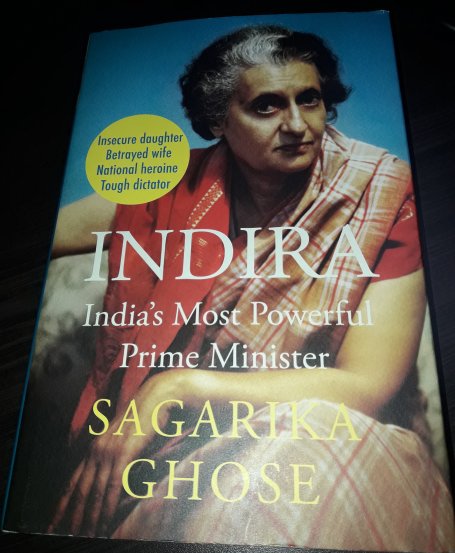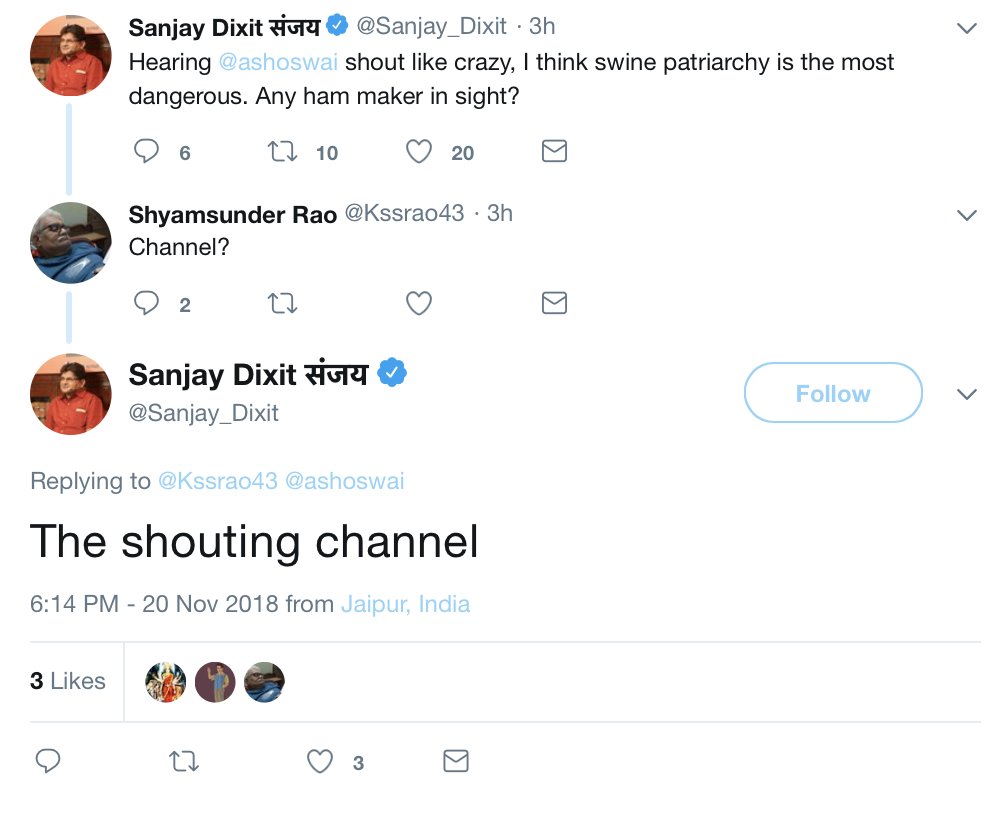We would like to show you a description here but the site won’t allow us. Rayagada: A two-wheeler rider was slapped a fine of Rs 18,500 Sunday night for flouting traffic norms in Rayagada town under the provisions as envisaged in Motor Vehicles (Amendment) Act, 2019. According to a source, the violator named Y Sagar was issued a challan for allegedly driving a scooter which has been registered in the name.
- Ashok Swain Twitter Accounts
- Ashok Swain Uppsala University
- Ashok Swain Twitter Account
- Ashok Swain Twitter Address
| Born | 19 February 1965 (age 56) Patalda, Puri, Odisha, India |
|---|---|
| Nationality | Swedish[citation needed] |
| Alma mater | Jawaharlal Nehru University |
Ashok Swain (born 19 February 1965) is an Indian-born academic and professor of peace and conflict research at the Department of Peace and Conflict Research, Uppsala University.[1] In 2017, he was appointed as the UNESCO Chair on International Water Cooperation and became the first UNESCO Chair of Uppsala University.[2][3] Swain received his PhD in 1991 from the School of International Studies of Jawaharlal Nehru University, New Delhi, India.

Selected publications[edit]
Books[edit]
- Ashok Swain & Anders Jägerskog, Emerging Security Threats in the Middle East: The Impact of Climate Change and Globalization (Lanham: Rowman & Littlefield, 2016).[4]
- Anton Earle, Ana Elise Cascao, Stina Hansson, Anders Jägerskog, Ashok Swain, & J¨oakim Öjendal, Transboundary Water Management and the Climate Change Debate (London: Routledge, 2015).[5]
- Ashok Swain, Understanding Emerging Security Challenges: Threats and Opportunities (London: Routledge, 2012).[6]
- Ashok Swain, Struggle Against the State: Social Network and Protest Mobilization in India (Farnham: Ashgate Publishing Limited, 2010).[7]
- Ashok Swain, Managing Water Conflict: Asia, Africa and the Middle East (London & New York: Routledge, 2004).[8]
- Ashok Swain, The Environmental Trap: The Ganges River Diversion, Bangladeshi Migration and Conflicts in India (Uppsala: Department of Peace and Conflict Research, 1996).[9]
- Ashok Swain, Environment and Conflict: Analyzing the Developing World (Uppsala: Department of Peace and Conflict Research, 1993).[10]
Edited books[edit]

- Anders Jägerskog, Michael Schulz & Ashok Swain, Routledge Handbook on Middle East Security (London: Routledge, 2019).[11]
- Ashok Swain & Joakim Öjendal, eds., Routledge Handbook of Environmental Conflict and Peacebuilding (London: Routledge, 2018).[12]
- Anders Jägerskog, Ashok Swain & Joakim Öjendal, eds., Water Security (4 Volume Set) (London: Sage Publications Ltd, 2014).[13]
- Ramses Amer, Ashok Swain & Joakim Öjendal. eds., The Security-Development Nexus: Peace, Conflict and Development (London: Anthem Press, 2012).[14]
- Ashok Swain, Ramses Amer & Joakim Öjendal. eds., The Democratization Project: Opportunities and Challenges (London: Anthem Press, 2009).[15]
- Ashok Swain, Ramses Amer & Joakim Öjendal. Eds., Globalization and Challenges to Building Peace (London, New York & Delhi: Anthem Press, 2007).[16]
- Ashok Swain, ed., Islam and Violent Separatism: New Democracies in Southeast Asia (London, New York & Bahrain: Kegan Paul, 2007).[17]
- Ashok Swain, ed.,Diasporas, Armed Conflicts and Peacebuilding in their Homelands(Uppsala University, Department of Peace and Conflict Research, 2007).[18]
- Fiona Rotberg & Ashok Swain, eds., Natural Resources Scarcity in South Asia: Nepal's Water(Stockholm: Institute for Security and Development Policy, 2007).[19]
- Ashok Swain, ed., Education as Social Action: Knowledge, Identity and Power (Basingstoke & New York: Palgrave Macmillan, 2005).[20]
Ashok Swain Twitter Accounts
References[edit]
- ^'Ashok Swain - Uppsala University, Sweden'. katalog.uu.se (in Swedish). Retrieved 2018-09-14.
- ^'First UNESCO Chair at Uppsala University - Uppsala University, Sweden'. www.uu.se (in Swedish). Retrieved 2018-09-14.
- ^'Unescoprofessurer i Sverige ' Svenska Unescorådet'. www.unesco.se (in Swedish). Retrieved 2018-09-14.
- ^Swain, Ashok; Jägerskog, Anders (2016). Emerging Security Threats in the Middle East: The Impact of Climate Change and Globalization. Rowman & Littlefield. ISBN9781442247659. Retrieved 28 May 2019.CS1 maint: discouraged parameter (link)
- ^Earle, Anton; Cascao, Ana Elisa; Hansson, Stina; Jägerskog, Anders; Swain, Ashok; Öjendal, Joakim (2015). Transboundary Water Management and the Climate Change Debate. Routledge. ISBN9781136228360. Retrieved 28 May 2019.CS1 maint: discouraged parameter (link)
- ^Swain, Ashok (2013). Understanding Emerging Security Challenges: Threats and Opportunities. Routledge. ISBN9780415523301. Retrieved 28 May 2019.CS1 maint: discouraged parameter (link)
- ^Swain, Ashok (2016). Struggle Against the State: Social Network and Protest Mobilization in India. Routledge. ISBN9781317049050.
- ^Swain, Ashok (2004). Managing Water Conflict: Asia, Africa and the Middle East. Routledge. ISBN9781135768836. Retrieved 28 May 2019.CS1 maint: discouraged parameter (link)
- ^Swain, Ashok (1996). The Environmental Trap: The Ganges River Diversion, Bangladeshi Migration, and Conflicts in India. Department of Peace and Conflict Research, Uppsala University. ISBN9789150611458. Retrieved 28 May 2019.CS1 maint: discouraged parameter (link)
- ^Swain, Ashok (1993). Environment and Conflict: Analysing the Developing World. Uppsala University. ISBN9789150609905. Retrieved 28 May 2019.CS1 maint: discouraged parameter (link)
- ^Jägerskog, Anders; Schulz, Michael; Swain, Ashok (2019). Routledge Handbook on Middle East Security. Routledge. ISBN9781351718363. Retrieved 28 May 2019.CS1 maint: discouraged parameter (link)
- ^Swain, Ashok; Öjendal, Joakim (2018). Routledge Handbook of Environmental Conflict and Peacebuilding. Routledge. ISBN9781315473758. Retrieved 28 May 2019.CS1 maint: discouraged parameter (link)
- ^Jägerskog, Anders; Swain, Ashok; Öjendal, Joakim (2014). Water Security. SAGE Publications. ISBN9781446293928. Retrieved 28 May 2019.CS1 maint: discouraged parameter (link)
- ^Amer, Ramses; Swain, Ashok; Öjendal, Joakim (2013). The Security-Development Nexus: Peace, Conflict and Development. Anthem Press. ISBN9781783080656. Retrieved 28 May 2019.CS1 maint: discouraged parameter (link)
- ^Swain, Ashok; Amer, Ramses; Öjendal, Joakim (2011). The Democratization Project: Opportunities and Challenges. Anthem Press. ISBN9780857283993.
- ^Swain, Ashok; Amer, Ramses; Öjendal, Joakim (2008). Globalization and Challenges to Building Peace. Anthem Press. ISBN9781843312871.
- ^Swain, Ashok (2014). Islam And Violent Separatism. Routledge. ISBN9781135024420.
- ^Bush, Kenneth D. (2007). Diasporas, Armed Conflicts and Peacebuilding in Their Homelands. Uppsala Universitet. ISBN9789150619638.
- ^Swain, Ashok (2007). Natural Resources Scarcity in South Asia: Nepal's Water (Stockholm: Institute for Security and Development Policy, 2007). Editor with Fiona Rotberg. Stockholm: Institute for Security and Development Policy. Retrieved 28 May 2019.CS1 maint: discouraged parameter (link)
- ^Swain, A. (2005). Education as Social Action: Knowledge, Identity and Power. Springer. ISBN9780230505605.
External links[edit]
New Delhi, 31st May: The Indian Army has been vilified by the Chinese army’s punches, slaps, and sticks. The pictures have gone viral and the Indian generals are seeking out the viral images.
Reports say Indian Army’s morale has plummeted since the images went viral.
This what Chinese soldiers have done to Indian soldiers in Ladakh!
Why is Modi silent? Why no demand by Indian media for surgical strike? Where is Mohan Bhagwat's RSS 'Army'? pic.twitter.com/pXaxHRDr0g
— Ashok Swain (@ashoswai) May 31, 2020
An Indian defense analyst Ashok Swain, while sharing the photos on social networking site Twitter, said that Indians should now know and believe in how Chinese troops are manipulating Indian troops.
Ashok Swain asks where is their Prime Minister Modi was always on fire? Now he should answer the nation how well the Chinese army has repaired our soldiers.
Ashok Swain Uppsala University
Ashok Swain says Indian media is no longer inciting the Indian government and army to launch a surgical strike against China. It should be of the same style that was used for Pakistan.
Ashok Swain says where is RSS chief Mohan Bhagwat and his militia now, which has made life difficult for minorities in the country?
He says they should have gone against China now but they never did.
Ashok Swain Twitter Account
India is witnessing its worst-ever border tensions since the Kargil battle in 1999, with China bringing forward at least 5,000 troops along the Line of Actual Control (LAC) in eastern Ladakh.
Transgressions have been reported at multiple locations in eastern Ladakh — three in the larger Hot Springs area and one in the ‘Finger’ area of Pangong lake.
In a recent development, Chinese troops have moved in “nearly 10-15 km from the Indian post-KM 120” in the Galwan Valley, and have pitched tents and stationed themselves close to the post. Post-KM 120 lies on the strategic Shyok-Daulat Beg Oldi road whose inauguration last year caused much discomfort to China.

Ashok Swain Twitter Address
Stay tuned to Baaghi TV for further updates!
